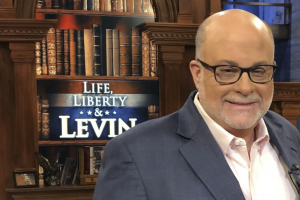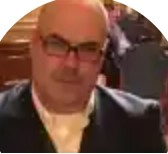
Abbreviated Pundit Roundup is a long-running series published every morning that collects essential political discussion and analysis around the internet.
We begin today with Adam Serwer of The Atlantic being totally non-surprised that U.S. Supreme Court Justice Samuel Alito is an insurrectionist.
The most charitable interpretation of Alito’s non-disavowal of the upside-down flag and its meaning is that, because the Court has several forthcoming cases related to Trump’s actions, he wanted to avoid expressing an opinion beforehand. Justices do typically try to avoid opining publicly on matters that come before them, and to avoid the appearance of partisanship, even if they do not always succeed. Perhaps this really was what Alito was thinking when he gave that statement to the Times. The flaw in this defense is that Alito is as shy about sharing his political opinions as a street preacher is in predicting the apocalypse.
In 2020, Alito warned that liberals were a threat to free speech. In 2021, he attacked the media for correctly reporting that the Supreme Court had nullified the right to an abortion in Texas by upholding the state’s abortion-bounty law, and was poised to overturn that right in the rest of the country. In 2022, he mocked those who criticized his ahistorical ruling in the Dobbs case, which has led to a patchwork of laws that subject women to a gender-based regime of state force and surveillance. In 2023, he ran to the Wall Street Journal editorial page to defend himself after reporters uncovered his cozy relationship with a right-wing billionaire. A few days ago, he warned that “support for freedom of speech is declining dangerously, especially where it should find deepest acceptance,” only he was echoing ubiquitous right-wing rhetoric about liberals on college campuses, not reflecting on Republican-controlled states engaging in a massive campaign of outright censorship. And despite all of these public statements attacking the left, particularly on matters of free speech, Alito has amassed a jurisprudential record suggesting that his interpretation of the First Amendment confers a right to monologue on those who share his beliefs.
Ben Protess and Jonah E. Bromwich of The New York Times say that while a somewhat effective cross-examination was mounted by Todd Blanche for the shoe salesman last Thursday, the prosecutors still hold distinct advantages as The People of the State of New York v. Donald J. Trump enters its final stage.
But as the trial enters its final stage and the focus shifts from the lawyers at the lectern to the 12 silent New Yorkers who will determine Mr. Trump’s fate, the case remains the prosecution’s to lose. Between the reams of circumstantial evidence and some very favorable laws underpinning the charges, the Manhattan district attorney, Alvin L. Bragg, has retained inherent advantages. […]
Mr. Cohen’s testimony that Mr. Trump “approved” the plan could give prosecutors what they need. It might not matter that he did not accuse Mr. Trump of personally falsifying the records or explicitly instructing anyone to do so. Under the New York law that Mr. Trump is charged with violating, prosecutors need only show that he “caused” his company to file false records.
The prosecution has another legal card to play: The law holds a defendant accountable even when he does not carry out the crime himself, so long as he “intentionally aids” it. The issue was highlighted during jury selection, when a prosecutor, Joshua Steinglass, asked prospective jurors whether they could accept the idea that a husband who hired a hitman to kill his wife was guilty of her murder. Many agreed they could.
Susan B. Glasser of The New Yorker wonders if anything can move a seemingly deadlocked American electorate.
Much harder to predict is whether even a conviction in this case might finally move the largely immovable American electorate. Polls hint that the answer is just maybe yes, at least among a small percentage of Republicans who do not identify as part of the Party’s most fervently pro-Trump magabase. In a Reuters/Ipsos poll on the eve of the New York trial, for example, twenty-four per cent of Republicans, including thirteen per cent of Trump supporters, said that they would not support him in November if he was convicted of a felony. But, with the trial finishing its fifth week and rapidly moving toward a verdict, experience strongly suggests that some skepticism is in order. The story of the past eight years is littered with examples of Republicans accepting the previously unimaginable from Trump. Why should this time be any different? […]
As the incumbent at a time when Americans could not be more sclerotic about the country’s present—and future—Biden urgently wants to change the race from a referendum on him to a reminder of all the chaos and craziness that would accompany another Trump Presidency. He is not wrong in thinking that Trump has always been the Biden campaign’s most effective surrogate. At the same time, Trump has long argued and actually seems to believe that his opponent is something akin to a blithering idiot, not to mention “the WORST debater I have ever faced.” Of course, he will seize on any debate missteps by Biden as evidence.
Will any of it matter? It’s one of the many oddities of this election year that both candidates currently appear too weak to win, with high unfavorables and highly unclear paths to victory, and yet win one of them must. So I wouldn’t rule anything out. Maybe Trump will be convicted and Republicans will turn against him en masse. Maybe Biden will stumble onstage in a way that simply cannot be recovered from. But don’t count on it. Political reality in 2024 is the grim math of an evenly divided country, when the prospect of an election game-changer just might be the most seductive campaign mirage of them all.
Anshel Pfeffer of Haaretz asks whether Israel’s PM Netanyahu can continue to fend off early elections and outline a strategy for the war in Gaza.
His [Gantz’s] ultimatum to resign from the cabinet and leave the government along with his party within three weeks if a plan is not formulated to address what he says are Israel’s six strategic objectives in this war won’t change the government’s direction. There’s no way this far-right-dominated coalition will accept his demands. But the speech is important in at least one way.
The bottom line isn’t the ultimatum, as we can’t trust Gantz not to find an excuse by June 8 to remain in the cabinet. The bottom line is that of the three war cabinet members (the others who attend the war cabinet are “observer members”), two have now publicly accused the third member, Netanyahu, of not having a strategy for a war that has been ongoing for seven and a half months. And despite all this, Gantz is giving Netanyahu another three weeks and Gallant didn’t even threaten to resign.
Gantz and Gallant have now both told the Israeli public that their prime minister is prepared to continue dragging the country deeper and deeper into Gaza without any viable plan for ending the war. They have both hinted heavily that he is doing so for political reasons, under pressure from the far right. Netanyahu’s war cabinet has now voted no confidence in him. In any normal political forum, this would be the end. Either the prime minister would have to fire his wayward ministers or they would resign immediately. And an election would be held at the soonest date.
Cristian Segura of El País in English reports that Russian progress in the Kharkiv region has been halted.
The fact that Russia has halted its advance may confirm the theory of Ukrainian Ministry of Defense intelligence services: that the enemy’s goal in opening a new front of fighting north of Kharkiv is to force Ukraine to reduce its troops in Donetsk. Moscow’s main objective, according to the main Western military analysis centers, is to conquer the municipality of Chasiv Yar and advance towards Pokrovsk, two cities in Donetsk. In these two areas, the intensity of the Russian advance has also decreased. According to an officer of the Ukrainian 23rd Mechanized Brigade, who was fighting in Donetsk until last week, this could be to encourage Ukraine to move more troops towards Kharkiv. This soldier, who preferred not to give their name for security reasons, said that the fighting in places like Chasiv Yar is still much more bloody than in this area of the north-eastern province.
This newspaper was able to verify that Russian forces have retreated to the northern periphery of Vovchansk, the main border municipality north of Kharkiv, largely thanks to Ukrainian artillery power. The Ukrainian Armed Forces are suffering from a serious shortage of ammunition, and are awaiting the arrival of larger quantities of U.S. missiles, but this problem is not detected in Vovchansk. On the Russian side, the fire of howitzers is destroying the city. The scale of the damage is reminiscent of the Battle of Bakhmut in 2023, which ended with Russia’s conquest and the city razed.
Ukrainian President Volodymyr Zelenskiy visited the city of Kharkiv on Thursday to analyze the progress of the fighting with his military commanders. The president said that the situation is “extremely difficult,” but “under control.” Although the Russian advance in Vovchansk and in neighboring Liptsi has been contained, Ukrainian authorities are preparing for a new offensive by Kremlin troops in another area of Kharkiv province, specifically on the border town of Kozacha Lopan. Residents in the town began evacuating on Wednesday.
Finally today, Mark Lasswell of The Washington Post writes about the one thing that I heard in the shoe salesman trial that cannot be unheard: testimony that Donald John Trump likes the Oxford comma.
So testified his former personal assistant and ex-director of Oval Office operations, Madeleine Westerhout, who last week detailed the elaborate fine-tuning that goes into the former president’s social media pronouncements before they’re unveiled to the nation.
This includes his preference for the Oxford comma, the controversial punctuation also known as the serial comma, used before the “and” in a list of three or more items. I never thought I’d write these words, but, Donald, I’m with you.
Now, Trump’s posts might seem like the careless effusions of an egoist impatient at having been kept too long from his hamburger after 18 holes of golf. But it turns out that Trump works in the Flaubertian manner. As the author of “Madame Bovary” wrote to his lover in 1846, “One achieves style only by dint of atrocious labour, a fanatic and dedicated stubbornness.”
In other words, pal, it takes a lot of work to make it look so easy. And now Westerhout has pulled back the curtain, revealing not only that her old boss was aware of the existence of the Oxford comma but also that he insisted on employing it. It’s all part of the heretofore unsuspected craftsmanship that goes into shaping the seemingly insouciant online Trump presence that so beguiles his followers.
On that solitary issue, I agree with Trump.
Everyone have the best possible day!









